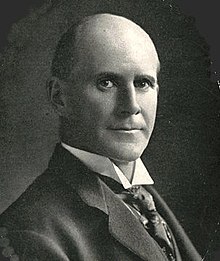West Virginia teachers and school service workers just won another historic victory with their two-day walkout to kill Senate Bill 451, the "ominous omnibus" bill.
If I had to explain what has happened over the last few weeks to an intelligent person from somewhere else relying on memory alone, it would go something like this. Please jump in and correct me where I'm wrong. (Sneak preview: Putnam County bus drivers are heroes!):
1. WV education workers won an historic victory with their work stoppage last year and some people on the losing end (fill in the blanks) never forgave them for that.
2. This session, those same people ambushed the senate with radical ideas about education "deform," which included privatization, charter schools, educational savings accounts, punishments for union workers and such along with benign measures like a 5 percent raise and help with PEIA and retirement. The bad ideas were pushed by out of state big money groups like ALEC and others who want to take down public education.
3. Education workers and allies began to mobilize against this and to come up with alternative ideas.
4. Gov. Justice, to his credit, came out against the senate bill, admitting it was partly motivated by revenge and pledging to veto it in its current form. Alas, the framers of WV's constitution apparently dozed off at some point and made it possible to override a governor's veto with a simple majority.
5. The bill was rammed down the metaphorical throat of the senate education committee. And, when it looked like the bill wouldn't make it through the senate finance committee (thanks to the defection of two Republicans), leadership went around it to adopt a rarely used "committee of the whole" to get it through the senate. (Some of us thought of it as a "committee of the hole.")
5. Education workers voted to authorize a work stoppage if and when it seemed like the right thing to do to oppose 451.
6. SB 451 went to the house, which came up with an imperfect but significantly less evil version of the bill.
7. The senate refused to go with the house version and reloaded it with charters, educational savings accounts and other privatization measures.
8. At that point, education workers and their organizations called for a work stoppage which shut down schools in 54 of 55 counties, the outlier being Putnam.
9. Putnam bus drivers, service workers and many teachers heroically defied their bosses to hold the line, even though they may still face sanctions. All honor to them!
10. After one day of striking, the house refused to concur with the senate version, which seemed to kill the bad bill. There was much rejoicing, but nobody trusted the senate, so the strike continued for another day.
11. By day two of the strike, the deadline for reviving 451 passed. On the evening of day two, a return to work was declared by AFT, WVEA and WVSSPA.
12. All of which is to say, this was a truly historic victory! Of course, we can still expect dirty tricks and bad bills in the remaining days of the session. And we as in education workers and families and their allies need to get in front of this and come up with a real plan to improve education with all WV students...in a way that freezes out privatization, charter schools, vouchers, and educational saving accounts and such.
13. But let's face it, y'all. WV just won another historic and inspiring victory for the labor movement and for kids and for working people. Last year's victory continues to inspire teachers and other workers (keep an eye on Oakland CA for the latest example). May this year's victory inspire more of the same.













